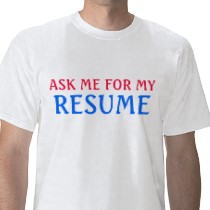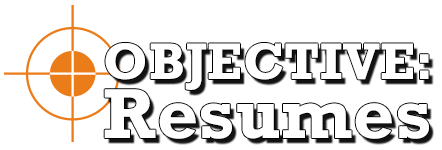
Given the plethora of often conflicting advice emerging from self-professed career specialists, one would assume that the answer to this pressing question is “Yes.” Thankfully, in accessing this site, you benefit from our thirty years of experience in crafting career-advancement documents, including our expertise in monitoring and implementing the resume writing trends that make sense. Therefore, our answer to this question is, “No!”
Think about it. If you were to totally customize your resume for every single job in which you are interested and qualified, you would never get a moment’s sleep. All you can honestly do is highlight your skills and accomplishments to fullest advantage. If you invent proficiencies or lie about your successes, how will you support these fallacies during an interview? More importantly, how will you support them if you ace the interview and land the job?
Some pundits believe that hybrid style resumes work best. This format begins with a strong summary or profile, flows into a functional (skills-based) resume, and then follows with a traditional chronology (employers and their locations, dates of employment, job titles, and bulleted job functions). While a hybrid strategy does seem to cover all the bases, you can kiss that so-called “one page resume rule” goodbye. Proof positive of how the “professionals” offer you conflicting, confusing, and erroneous information. In truth, there is no such thing as a cookie cutter resume; no one resume will be an exact fit for each and every job.
How, then, do you give employers the information and phraseology that they seek when culling the thousands upon thousands of resumes that cross their information systems?  One way is to pepper your resume liberally with keywords that “pop.”  We recommend that you include keywords and key terminology early on in the resume. Use bullet points, and then expound upon these keywords in the actual text of your resume. Understanding that job descriptions use very specific terms, know that you are allowed some “play” with these terms, provided your job responsibilities truly reflect what the employer seeks.Â
Therefore, if you have engaged in direct sales, as in a retail environment, you may not have been required to cultivate long-term relationships with customers. But, you executed your job in a manner designed to invite repeat business. So, if the job description reads “business development” and not “sales,” you may substitute “business development” for “sales” as one your keywords.
Similarly, if the job description calls for “logistics and warehouse management” and you were an inventory control supervisor, you may substitute the phrase “supply flow process,” which requires the same essential skill sets as “logistics and warehouse management.” Odds are, you not only controlled cycle counts but you received and stored the inventory and facilitated its movement through the warehouse, onto the loading dock, and out to customer locations. Â
“Marketing” is also an extremely broad term. It can mean the planning of major marketing strategies as new product/service roll-outs, or the actual execution of these plans, which is more sales-oriented in nature. When speaking of in-store marketing, the correct term is “visual merchandising” (design and set up of product displays in accordance with the company’s standards).  The term “merchandising” has, over the past fifteen or so years, come to demonstrate more of a purchasing and product allocation function. So you see why you have that play with your words, provided your skills essentially fit the job description!
Instead of beating your head against the wall the next time you are tempted to totally rewrite your resume for one particular job description … and do it again and again, ad infinitum … take our advice and simply edit what you have on your resume.
If you feel that a job is absolutely ideal for you, reflecting skills you may have gained in another industry, the cover letter is the place for you to explain why you are that perfect fit. Unlike the resume, the letters flows in narrative form, providing you with opportunities to really sell yourself and secure the interview.
Similar Articles resume content
- Your Resume: Succinct and Boring or Detailed and Powerful? - May 13th, 2010
- Key in Those Keywords - November 10th, 2009
- By Any Other Name - November 3rd, 2009
- The Awards Ceremony - October 30th, 2009
- Resumes for Writers - October 27th, 2009
Similar Articles resume writing
- Your Resume: Succinct and Boring or Detailed and Powerful? - May 13th, 2010
- Key in Those Keywords - November 10th, 2009
- Resumes for Writers - October 27th, 2009
- Spruce It Up! - October 23rd, 2009
- Focus! - October 13th, 2009
